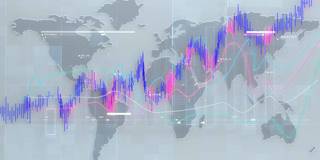The global economy and capitalism are at a crossroads, owing to the COVID-19 pandemic, climate change, the rise of digital technology, and the changing nature of labor markets. Understanding this new world will require major breakthroughs in economic thinking, and closer scrutiny of some of the discipline’s core assumptions.
NEW YORK – The International Economic Association’s triennial World Congress has long been one of the most important global gatherings of economists, owing to its success in bringing together researchers and policymakers from the poorest to the wealthiest corners of the world. The 19th edition of the event earlier this month, albeit held via Zoom instead of in person, was no exception.
One recurring theme of this year’s Congress was that the global economy and capitalism are at a crossroads. While the COVID-19 crisis was the immediate impetus for this view, other major shifts – from climate change and the rise of digital technology to the changing nature of labor markets – have been increasingly salient. The pandemic has merely accelerated these shifts or thrown them into sharper relief.
COVID-19 has forced us into one kind of “learning by doing,” an idea that the Nobel laureate economist Kenneth J. Arrow, who emphasized that much learning “is the product of experience,” developed in the abstract a long time ago. We have learned to give lectures and hold conferences by Zoom, and to make complex decisions in meetings conducted via Webex. People have suddenly realized that they had been spending more time than necessary in the office, and that they can do much of their work from home. And we have learned to shop at home, too, via digital platforms.

NEW YORK – The International Economic Association’s triennial World Congress has long been one of the most important global gatherings of economists, owing to its success in bringing together researchers and policymakers from the poorest to the wealthiest corners of the world. The 19th edition of the event earlier this month, albeit held via Zoom instead of in person, was no exception.
One recurring theme of this year’s Congress was that the global economy and capitalism are at a crossroads. While the COVID-19 crisis was the immediate impetus for this view, other major shifts – from climate change and the rise of digital technology to the changing nature of labor markets – have been increasingly salient. The pandemic has merely accelerated these shifts or thrown them into sharper relief.
COVID-19 has forced us into one kind of “learning by doing,” an idea that the Nobel laureate economist Kenneth J. Arrow, who emphasized that much learning “is the product of experience,” developed in the abstract a long time ago. We have learned to give lectures and hold conferences by Zoom, and to make complex decisions in meetings conducted via Webex. People have suddenly realized that they had been spending more time than necessary in the office, and that they can do much of their work from home. And we have learned to shop at home, too, via digital platforms.